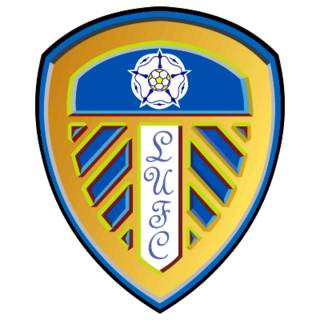
May 6th 2007 was a day the late Brian Clough would have wished he could witness, as his beloved Derby County beat their bitter rivals, Leeds United, 2-0 on the final day of the season, sending Leeds to League One, the third tier of English football for the first time in Leeds’ history. Two and a half years have passed since that infamous loss, and the Peacocks have seemed to rise from the dead as they are leading the League One table with 4 points ahead of ex Premiership outfit Charlton Athletic, and achieving 5th and 4th positions the last two seasons respectively.
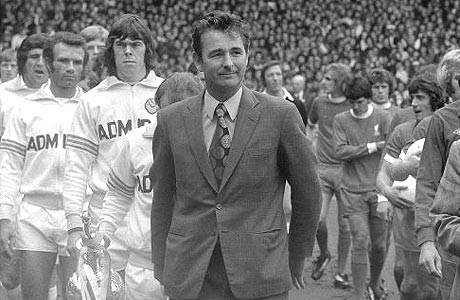
Image: Source
An Historical Look
The history of Leeds United starts following the disbandment of their predecessor team Leeds City FC for financial irregularities allegations in 1919. The club started to participate in the second division in 1920, up until their first promotion in 1924 under the management of Arthur Fairclough, Barnsley’s first ever manager. Leeds didn’t make any real impact on the football league as they were relegated and promoted on a regular basis, not managing to anything noteworthy, apart from having the honor of attaining the services of the Welsh legend John Charles until his unwanted departure to Italian giants Juventus FC for a then world record fee of 65,000 pounds.
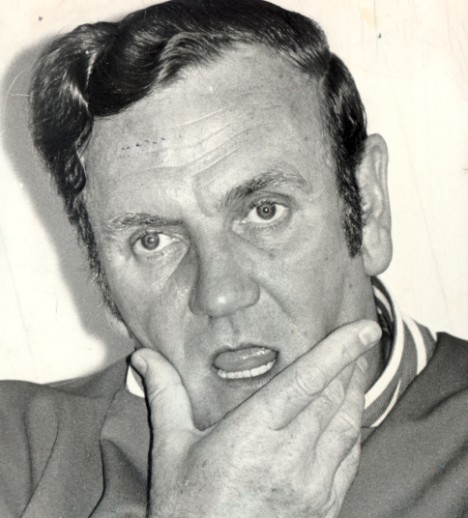
Image: Source
March 1961 was the day Leeds fortunes changed for the better, as Don Revie came to manage the club, guiding them to promotion in the 1963-1964 season. The club featured regularly in the top flight for 17 straight seasons, a club record until this day.
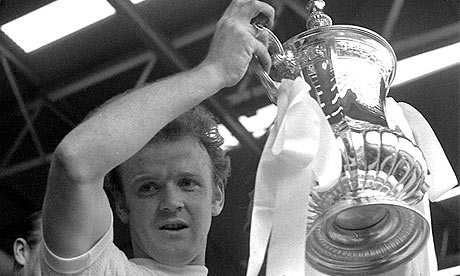
Image: Source
Don Revie installed a new style of play on his Leeds side, as they started playing with an aggressive and gritty style of football, granting the side’s nickname Dirty Leeds amongst the media and football fans. Revie’s side gave British Football two of it’s best partnerships with legendary captain Billy Bremner (Scottish), considered as Leeds’s greatest ever player, and Johnny Giles (Irish), forming one of the best midfield partnerships of the 70’s, as Bremner was the ball winner and Giles was the creative one, although both were accomplished at the others role. Another famous partnership was that of Jack Charlton, the most capped player in Leeds’ history , and Norman “Bites yer legs” Hunter at the back as they formed an iron curtain for the side. The side also featured cultured wingers such as Eddie Gray and Peter Lorimer ,the technical pinnacle of the side with one of the strongest shots in football’s history, and Allan Clarke as the potent goalscorer nicknamed Sniffer.
That famous side has won one FA Cup, one League Cup, two First Division Championships,two UEFA Cup finals and one Charity Shield. The side lost in one European cup final and one Cup Winners Cup final.
At the end of 1973-1974 championship winning season, Revie took the England job and was replaced by arch nemesis Brian Clough who managed for only 44 days in his infamous tenure, which is depicted in the film The Damned United.
From then on Leeds entered a dark era in which they saw relegation in the end of the 1981-1982 season after the club’s several former legends tried to change it’s fate, as managers.
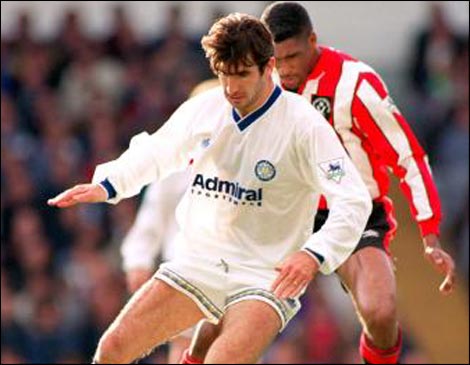
Image: Source
The club saw it’s next success under the guidance of Howard Wilkinson who managed to bring Leeds back to the top flight in the 1989-1990 season and two years after that oversaw the club winning the League in the 1991-1992 season with the help of the legendary french troublemaker, Eric Cantona, who was instrumental throughout that season, scoring goals and providing others.
After that glorious season Leeds performed poorly and finished 17th , narrowly avoiding relegation. From then on Leeds were inconsistent through the years and Wilkinson was dismissed from his role in the 1996-1997 season after a humiliating 4-0 loss to bitter rivals Man Utd.
George Graham came in as a replacement bringing prolific goalscorer Jimmy Floyd Hasselbaink, Michael Bridges, Lee Bowyer and goalkeeper Nigel Martyn. After two average seasons Graham moved on to join Tottenham being replaced by his assistant, ex-gunner legend and an integral part of his famous boring Arsenal, David O’Leary.
O’Leary brought Mark Viduka, as a replacement for Hasselbaink’s departure to Atletico Madrid and Olivier Dacourt (highest transfer record for the club at the time). The team consisted of many young prospects such as Harry Kewell, Jonathan Woodgate, Ian Harte, Alan Smith and Danny Mills.
Under O’Leary, the club went in to another golden period as they finished fourth in the 1998-1999 season and qualified to the UEFA Cup next season. The 1999-2000 season was even more successful as the club finished third and qualified for Champions League football the next season. However, the Semi Final with Galatasaray, which was Leeds’ first in 25 years, was overshadowed by the stabbing of a Leeds fan resulting in his death.
The 2000-2001 season was probably the icing on the cake as the club reached the Champions League semi final, losing to previous season finalists, Valencia, but couldn’t maintain that success as they failed to finish in 4th place, losing the Champions League spot for the next season, a thing that aided to their fall from grace. Leeds got to be the first club that suffered from the publicity and money the Champions League has to offer as clubs like Celta Vigo and Real Sociedad went down that road several years later.
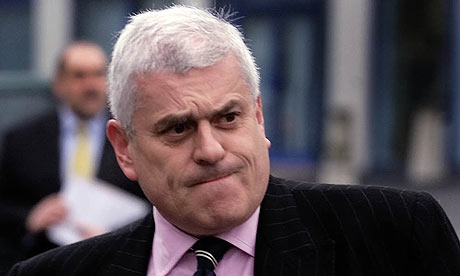
Image: Source
Because of high wages, huge spending on agent fees, first-class plane tickets, office stuff (The blue and yellow fish became a symbol of the money spending at the time) and large fees for players such as Liverpool legend, Robbie Fowler, the club were the victims of their own success as they were sucked into a turbulence which caused a huge debt, that saw the departing of players such as club captain, Rio Ferdinand. Terry Venables replaced O’Leary, after his public dispute with chairman, Peter Ridsdale, and couldn’t stop the club’s crashing as they continued to sell star players like Jonathan Woodgate. Eventually Venables was fired and Peter Reid came in as a unsuccessful replacement.
As the club finished the 2003-2004 season they were relegated, under the helm of caretaker manager and ex Peacock, Eddie Gray, igniting the exodus of most of the top players the club possessed. The club weren’t far from earning promotion back to the Premiership in the 2005-2006 season, losing in the playoffs to Watford, and they hit rock bottom as they were relegated in the 2006-2007 season to League One.
The 2007-2008 season started off with a 15 point deduction after the club didn’t follow up to the football league rules on club entering administration. However, the club under Dennis Wise and Gus Poyet seemed to be flourishing as the side were on an unbeaten run of 15 matches and were playing good football including a memorable 4-2 win over Millwall in a packed Elland Road. Strangely enough after a slight dip in form, Poyet left for Tottenham and Wise left in January for Keegan’s Newcastle, leaving the vacant job for former club captain Gary McAlister and his assistant Steve Staunton who guided the team to 5th position and a playoff final, eventually losing to Doncaster after being favorites for the tie.
Leeds started of the 2008-2009 season with high hopes as they signed Andy Robinson, Luciano Becchio and Robert Snodgrass and introduced, today’s Villain, Fabian Delph, who banged amazing goals against Walsall and Brighton.The side played a fine and creative style of football, but a string of bad results in December, including a humiliating loss to non league side Histon, was enough for Ken Bates, who relieved McAlister from his duties. The job was filled, two days later, by Simon Grayson who resigned from his job at Blackpool. Soon enough the side’s form significantly improved and Leeds managed to finish in 4th position and qualify for the playoff. After Leeds were beaten by Millwall in the semi final Grayson started to rebuild the squad over the summer by signing Aussie international Patrick Kisnorbo, Leigh Bromby and his throw-in specialist and current club captain, on a permanent deal, Richard Naylor.
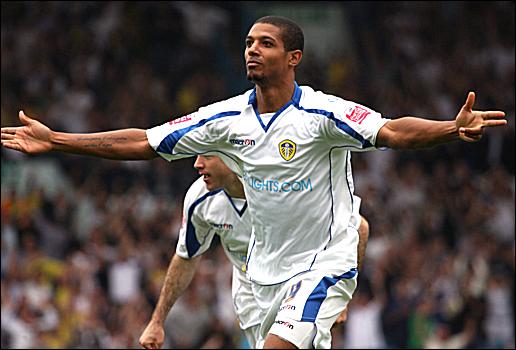
Image: Source
Leeds started this season with their best start in the club’s history (It is league one mind you), with 8 wins in the first 9 matches. Leeds’ current top goalscorer and fan favorite is Jermaine Beckford, who scored 14 goals in 21 games so far and he certainly looks on fire ,however it’s no big surprise as he has an average record of a goal every 1.77 games in his career at Leeds. Along with Beckford, Bradley Johnson has been praised all over the place for his performances this season, as he managed to bang 7 goals in league play so far. The Peacocks are 4 points ahead of Charlton (with one game to spare) being denied the full 3 points, drawing 2-2 in yesterday’s West Yorkshire derby against Huddersfield (with the highest attendance at Elland Road this season).
The Fans
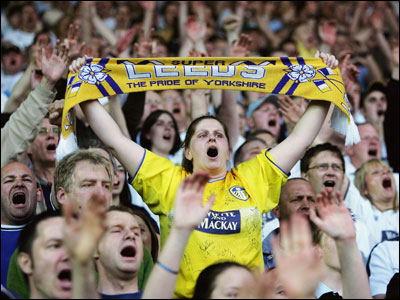
Image: Source
Leeds United’ fans have one of the most infamously known crowds in England and Europe , for regularly participating in riots and hooligan brawls. Leeds have several distinctive titles as they are the the third most rivaled club in England after Burnley and Man Utd, they are tenth in the all time average attendance in the Football League (Elland Road is the tenth biggest stadium in England) and they were voted, according to last season’ survey, the most hated club in England.
Leeds United have a huge local following as they are the only Professional club in the city, a fact that is in distinction from big cities like Manchester, Birmingham, London and Liverpool.
One of the reasons Leeds fans are loathed so badly is for the team’s reputation in the 70’s of being very aggressive and unsporting behavior, all in the sake of winning. Another reason is that Leeds fans are considered arrogant an big headed as they consider themselves part of a “big” club as Leeds United once was.
The Resurrection?
Can this be the year that Leeds will finally rise from the dead? The next string of games in the league seems very comfortable as they won’t meet a team from the table’s top ten until the away game at Walsall on January 15th. This schedule can help Leeds maintain their fine form and to expand their lead at the top of the table.
A win against Kettering Town on Tuesday will give Leeds (which is very likely, despite drawing with them in the previous game) the chance of facing fierce rivals, Man Utd, in the next round of the FA Cup. Maybe a surprise win or a good performance against the Mancs can finally show football fans that Leeds are back in business, and this time, for good. This option, unlike the Kettering Town business, is highly unlikely.
One response to “Leeds United – Movin’ On Up?”
[…] we have covered Leeds more thoroughly before (Movin’ on up), but in a post like this, how can the number two team in the third division (League One) in […]